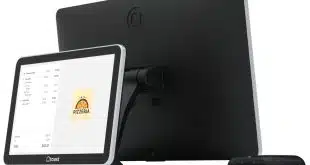Investors in Digital River Inc.’s stock reacted with exultation Wednesday morning when the gateway and e-commerce services provider disclosed that Microsoft Corp., its biggest customer, had renewed an agreement under which Digital River hosts the Microsoft Store online site. Not only has Digital River retained a client that accounts for 32% of its revenues, but the renewal also removes a cloud over the company’s planned $840 million buy-out by a private-equity firm.
Digital River’s shares rose 45% to $24.43 in NASDAQ stock market trading shortly after the Minnetonka, Minn.-based company reported the renewal in a regulatory filing, gaining $7.57 over Tuesday’s $16.86 close.
Just last week, Digital River disclosed that it had extended the deadline, from Dec. 1 to Dec. 19, for Microsoft to declare its intentions about extending the expiration date of a distribution agreement between the two companies dating back to 2006. The agreement had been scheduled to expire March 1, 2015. That notice triggered a 23% drop in Digital River’s shares on Dec. 8, and the stock fell still further in the next few days.
Now the agreement runs until March 31, 2017. Microsoft may extend the expiration date for up to four separate six-month renewal terms, according to Digital River’s filing. Digital Transactions News has estimated the Microsoft contract was worth $127 million to Digital River last year.
In addition, Digital River reported in the filing that the 45-day so-called “go shop” provision in its planned buy-out agreement with Siris Capital Group LLC that allowed it to look for a better offer had expired without Digital River finding one. Digital River said it expects the transaction to close in 2015’s first quarter as originally planned. Siris Capital will pay $26 per share under the offer announced in October.
Digital River’s stock swoon last week was another example of the problems some payments companies have encountered by being heavily dependent on a single customer. Some, notably wire-transfer provider MoneyGram International Inc. and prepaid card services provider Green Dot Corp., get a large share of their revenues through agreements with Wal-Mart Stores Inc.





